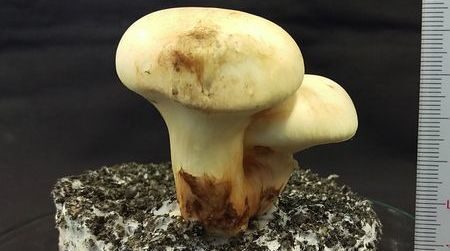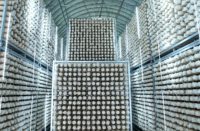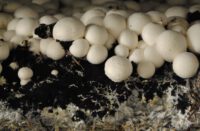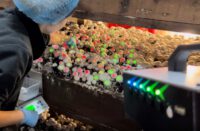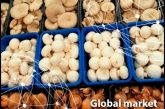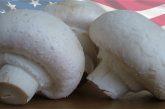A fertilizer-maker in western Japan has claimed success in artificially cultivating bakamatsutake mushrooms — a species related to the highly prized matsutake mushroom, with a similar taste and flavor. Once mass production of bakamatsutake, whose scientific name is Tricholoma bakamatsutake, is ready, consumers will be able to enjoy its matsutake-like flavor, but at a lower cost, said
Taki Chemical Co. the Kakogawa, Hyogo Prefecture, based company behind the research.
Bakamatsutake mushrooms are found in beech and oak forests, not in red pine woodlands where matsutake mushrooms grow. The growth season for bakamatsutake starts about one month ahead of the matsutake mushrooms, according to the company.
Although another institute has symbiotically cultivated the mushrooms on plants, a researcher at Taki Chemical, who first started work on developing an artificial cultivation method for bakamatsutake mushrooms about six years ago, has for the first time successfully grown them on artificial mushroom beds, the company said. It is said the mushroom was named baka (stupid) matsutake because it failed to grow in the same place and season as matsutake. But Taki Chemical said bakamatsutake is often described as tasting and smelling better than matsutake.
Domestically harvested matsutake mushrooms sell for ¥40,000 to ¥50,000 (5-6,000 EUR) per kilogram, although their prices vary depending on when and where they are picked. But even matsutake-specialized sellers said they have no idea about prices for bakamatsutake mushrooms due to their rare appearance at retail stores.
Pointing out that artificial cultivation will make it possible to ship bakamatsutake mushrooms any time of the year, a Taki Chemical official in charge hopes that the company will be able to develop a stable production system and launch its bakamatsutake business in three years.
“We’d like to supply products cheaper than matsutake mushrooms,” the official said.
Source: Japan Times


